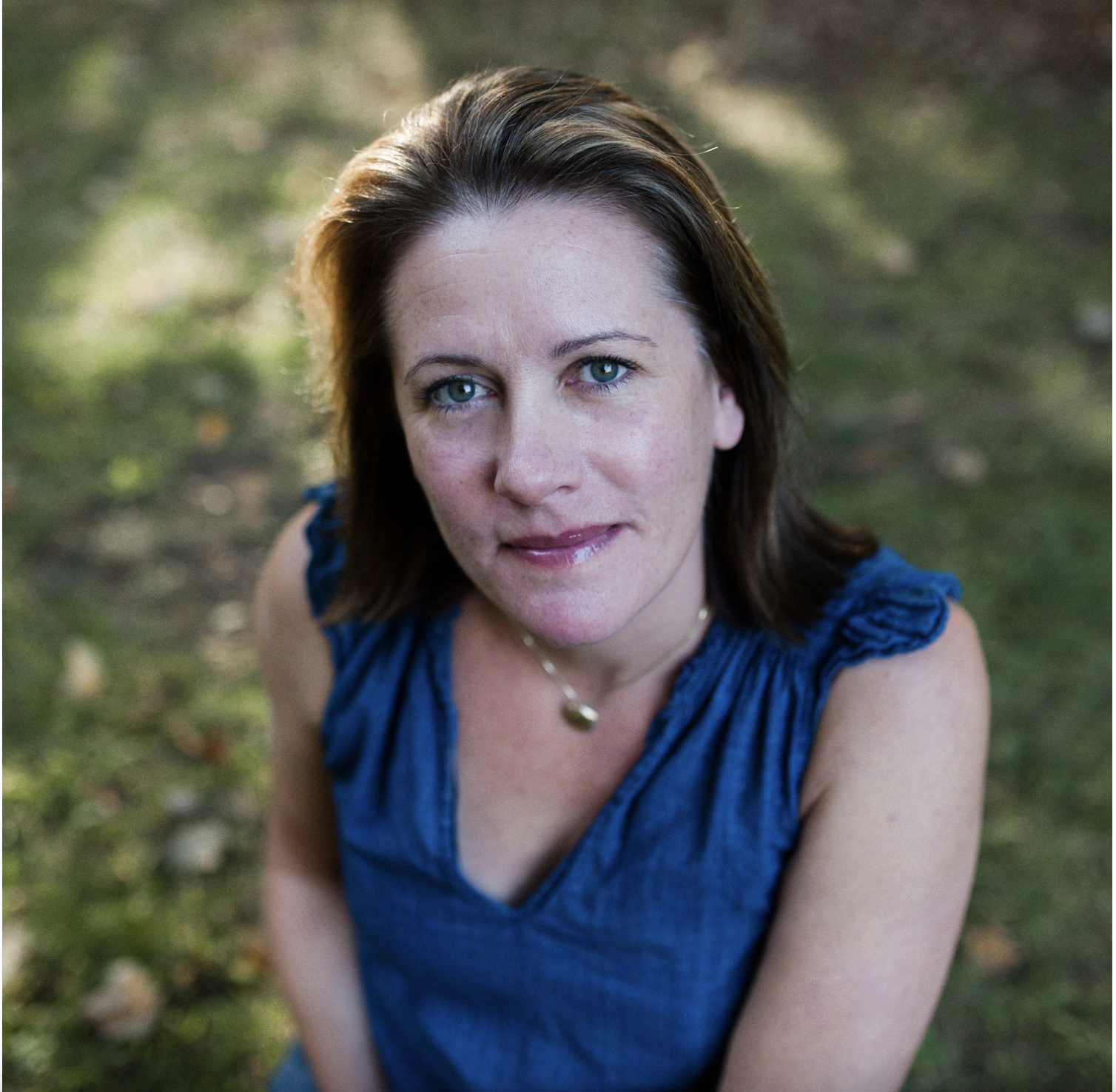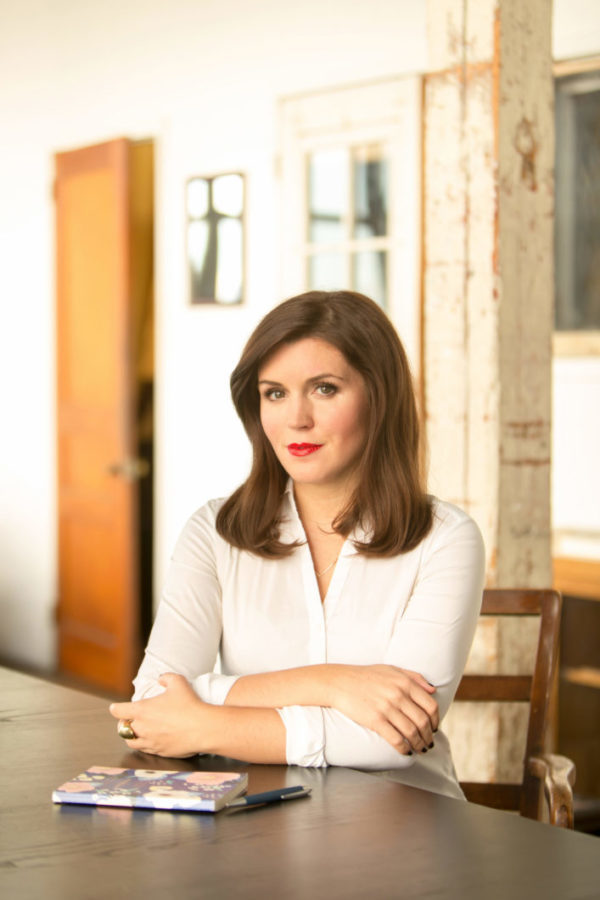
Brooklyn Eagle recently featured Park Slope writer Becky Aikman, who begins her new book by getting to the point: “I got kicked out of my widows’ support group,” she writes. “I would say that things had gone from bad to worse, except the worst, no question, had already happened. When your husband has died while you’re still in your forties, seriously, anything less and you have to laugh.”
Though she tackles a heartbreaking subject, in “Saturday Night Widows: The Adventures of Six Friends Remaking Their Lives,” released this Tuesday, Jan. 22, Aikman manages to approach her writing through a lighthearted lens, reminding herself and her readers that self-awareness and humor can assuage even the most tragic of circumstances.
A year and a half after losing her husband to cancer, Aikman attended her first widows’ support group meeting. While she expected to find guidance in a community devoted to moving on, Aikman found just the opposite: she felt her desire to be happy set her apart from the other widows, whose grief seemed to amplify during the group meeting. When the group’s leader asked that she not return, Aikman got to thinking about how people go about dealing with loss. Five years later, remarried but still reflecting on her husband’s death, Aikman began her own widows’ support group. Once a month for a year, she met with five young widows on a Saturday night — none of whom knew each other before joining this group.
Read on for a Q&A with Aikman, in which the writer unpacks the term “widow” and reveals her motivations for publishing this book.
Q&A originally published by The Crown Publishing Group/Random House
What gave you the idea of forming your own widows’ support group?
Losing someone close to you has to be one of life’s most universal experiences, but it wasn’t until it happened to me at a relatively young age that I realized our culture doesn’t provide much guidance about how to start over afterward. I hoped that by joining with other young widows, we could lighten the task by facing this daunting transition together.
What kinds of things did the group do together?
I had joined a traditional support group before, but the goal seemed to be to sit in a circle, dredge up painful memories, and talk about how sad we were. And there weren’t even any snacks! So I put together more of a renegade group, looking to the future, and focused on doing, not talking. Although we did wind up talking our heads off, too, we also cooked together, volunteered, invited widowers to meet us. We inflicted a self-improvement regimen on ourselves at a spa, and went through the family home of one of the women when she was packing up to move. We even went lingerie shopping together when some of the women started to look for love again. Ultimately, we took a transforming trip to a place none of us had visited before. Along the way, we shared a few tears, but a lot more laughter.
How did you put the group together? Did their differing backgrounds and loss experiences create conflict?
My process for finding the other women couldn’t have been more random. Young widows are fairly rare, so I asked everyone I knew—friends and friends of friends, colleagues, my gynecologist, anyone who crossed my path. Then when I introduced the women to each other for the first time, I thought, “Wow, did I make a mistake.” It was a crazy mismatch of personalities. All we had in common was that each woman had suffered through a tragedy that had turned her life upside down. I was afraid that this was going to be one sad story, snacks or no snacks. But instead, it turned into an adventure story, not only the adventures we shared, but the adventures each of us encountered as we navigated our way through incredible changes.
At what point did you realize it wasn’t just a group for a year, but for life?
It was awkward when we first met, but we all had a desire to make our lives full and happy again, and that was enough to overcome any dubiousness we might have felt. Soon we started to share secrets that we revealed to no one else. There was real empathy and understanding, but also fun, silliness, and loads of good-old-fashioned girlfriend advice. The realization that we would come to feel real love for each other came on gradually as we shared all these intense experiences.
What did you hope your group would accomplish, and did that differ from what it did accomplish?
I had hoped we’d provide each other with company through some significant milestones—tossing out the fruit baskets after the funeral, taking off the ring, weathering the first anniversary, the first holidays alone, the first date, the first sleepover date. What surprised me was how much our shared experience led us to make discoveries that guided our futures. And how it granted real healing to each of us, me included.
Do you think our society isolates widows?
Absolutely. I mean, think of all the connotations of the word widow: gloomy, old before her time, helpless, irrelevant, the last person you’d want to sit next to at a party. It’s bad enough to be experiencing grief without being saddled with all those defeatist expectations, too.
How have your feelings about the word widow changed?
I came to embrace the word when I realized that I was a widow, that my friends were widows, and we weren’t any of those things. Widows can be fun, widows can be cool, widows can be sexy, widows can embrace the future and embrace each other, too. Anybody who’s suffered a loss in life has to tap into courage and resilience, and that’s something to admire.
How did the women change over the course of the story?
It wasn’t just that we were learning to live without our husbands. In many ways, their loss had put the script that each of us had been following through the shredder, and we had to write new ones. Members of the group wound up changing our homes, our relationships with families and friends and children, our careers. Most everybody started to date again, and some of us forged new relationships, with all the screwball complications that come along with trying to pull that off in midlife.
You did a lot of research on grief. Who did you talk to, what did you find out, and how do you think that information helped the women in the group?
Researchers have only recently begun to study loss and grief in a serious way. I relied a lot on the work of George Bonanno, an experimental psychologist from Columbia University. He and others have studied actual people who were grieving over time, and have turned the conventional wisdom upside down. The research has shown that grief doesn’t have to be a long-term, debilitating sadness, that people are naturally resilient, that they benefit from positive experiences, new experiences, humor, and friendship. Oh, and there’s no such thing as Elisabeth Kübler-Ross’s famous five stages of grief. The findings became the basis for our group’s action-oriented approach. We may have been amateurs compared to the researchers, but I think we wound up demonstrating all of their points.
What did you find out about the differences between how men and women grieve over the loss of a loved one?
There hasn’t been much formal study about it. So we conducted our own highly amateur and unscientific survey by meeting once with a group of widowers. Most of them did seem to start dating again a lot quicker than we did, and they got a lot of offers of what they called “sympathy sex.”
You had remarried by the time the group started, but it’s clear that you were still dealing with your grief over the loss of your first husband. Before the group started, did you expect it to help you, too?
When I started the group, I viewed myself as the organizer, the journalist who would chronicle our story. But I was determined to tell my own story, too. My grief was still fresh, and I was coping with all the upheaval of trying to cobble together a new life, with a new career, new husband, new stepdaughter, new home, and new dog. I began to rely on the advice and example of the group for how to put it all together and keep it in balance with my memories from the past. Over the course of sharing so many adventures and conversations with the other Saturday Night Widows, my bond with them couldn’t be denied.
 What did the women do together that they couldn’t do alone?
What did the women do together that they couldn’t do alone?
I think being together gave us permission to laugh, to seek out pleasure and love again, to change and enjoy ourselves without judgment. I can’t tell you what a relief it was to feel free of limiting expectations, to breathe. And the examples we saw in each other gave us to the courage to break the mold, the mold imposed by society . . . and ourselves.
Why did you write SATURDAY NIGHT WIDOWS? Did it help you continue to move forward after the loss of your husband?
It did, but I hadn’t set out with that as my primary goal. In a broader sense, I wanted to show how people go through adversity and come out the other side, how they can reinvent themselves at midlife, and the role that friendship can play in all that.


